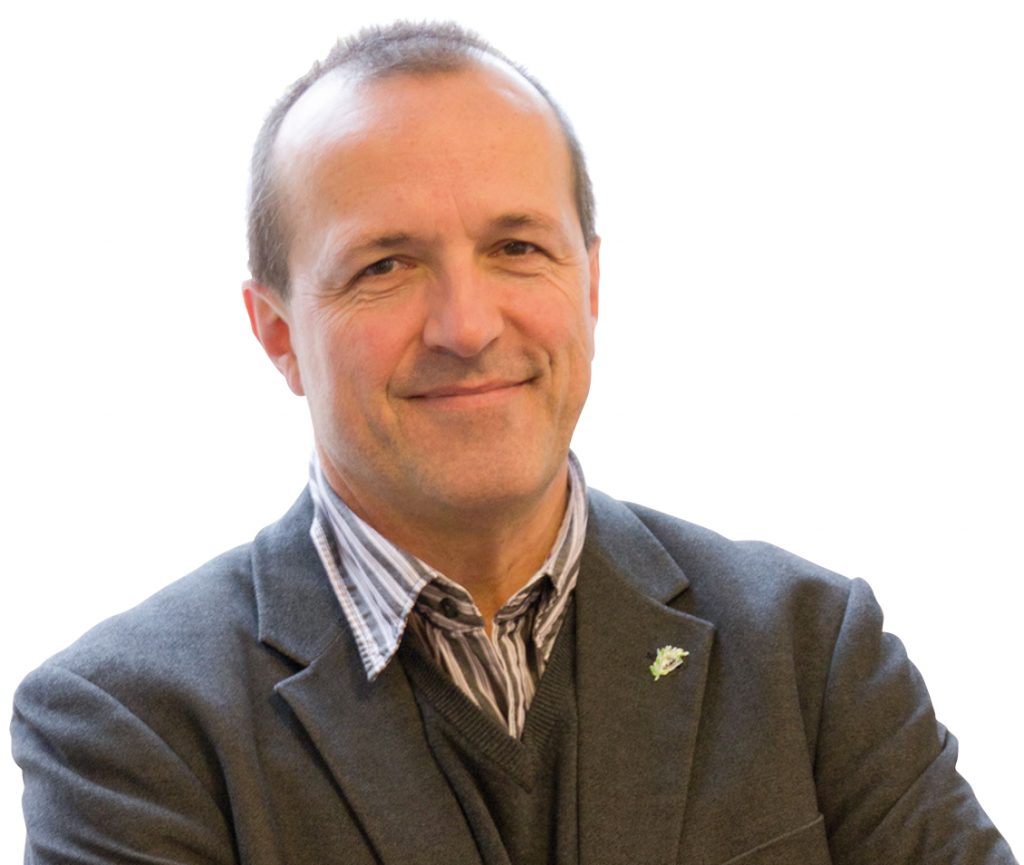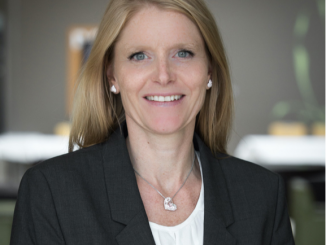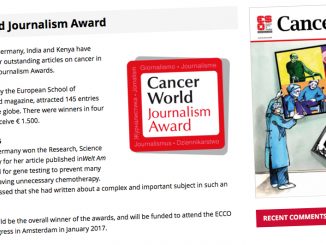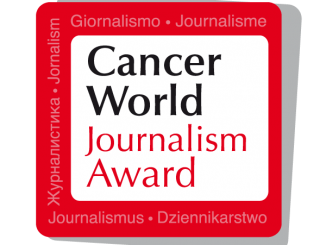As ECCO’s new President-elect, Philip Poortmans is the first person to have a full democratic mandate from across all ECCO’s 24 member societies which, between them, represent the full range of healthcare professionals involved in delivering specialist cancer care. Cancer World Editor, Alberto Costa, asked him how he intends to use that mandate.
Alberto Costa: You’ll be taking over as President-elect after the ECCO2017 congress, which is itself an innovation, as the first of the new style of ECCO conference. What will your priorities be?
Philip Poortmans: My first priority will be to emphasise the critical importance of a truly multidisciplinary partnership, based on equality, mutual understanding, trust and – why not – friendship. This is vital because only by working closely together can we offer patients the best possible personalised treatment and care. For this we need a continuous dialogue between all partners and stakeholders who are active in the cancer community.

We are also facing new challenges, including a growth in the number of cancer patients, an ever-increasing speed at which new developments are being introduced, and an impending shortage of the cancer workforce. Against the background of limited resources, we should all together, in close partnership with the patients, design the best possible oncological landscape and convince the policy makers of investing in this in the best possible way.
My second priority will be to further expand the active involvement of our patients, as they are our most valuable partners. We need their input into defining the goals to achieve that we should be working on together. This will mean integrating patient advocates in the discussions and processes that will determine how our scientific and professional societies evolve.
It is our shared commitment to design the required changes in the way we conduct our own scientific and educational activities, and to participate in managing change in the way healthcare is organised and delivered. This calls for a partnership with patients, so that we can work together to make a difference by jointly shaping policy, education, health service research and so on.
My third priority is to ensure that we continue to proactively adapt our strategy and ways of working in line with changes in the world around us. We need an open structure and an ability to lead collaboratively, in a very constructive way, to incorporate required changes quickly. The ECCO Board should therefore reflect, on a regular basis, on the extent to which our strategy is up to date and, whenever doubt arises, it should critically review the way in which our vision is translated into a strategic approach. The keywords of ‘patient involvement’ and ‘multidisciplinary collaboration’ will apply to whatever adaptation might be required!
AC: ECCO claims to be ‘the unified voice of cancer professionals’ in Europe. How can you fulfil this role going forward?
PP: It is impossible to overstate the importance of engaging with politicians and policy makers, based on a single vision and mission, if we are to achieve the significant changes we need in healthcare policies, in line with our patients’ rights and hopes. ECCO will play this role, in close partnership with our patients’ representatives, as we represent all European oncology disciplines, united behind our shared mission to “uphold the right of all European cancer patients to have access to the best possible treatment and care”.
While inwardly – in the world of oncology – this shared mission serves as a unifying factor, outwardly it is an invaluable asset in our efforts to convince politicians and policy makers to focus much more on efforts to alleviate the burden of cancer in the interests of the future health of mankind.
Patient advocacy groups also have a central role in these political advocacy activities, partnering with the oncology caregivers and researchers we represent. They carry particular weight with policy makers, as they speak for the people who are directly affected, representing a growing electoral constituency with an increasingly influential public voice.
AC: You were recently elected by means of the first secret ballot to be used in electing a future ECCO president. Is there more democracy to come?
PP: Yes, certainly! I am a democrat, always searching for consensus-based decisions. But this should not be allowed to paralyse the organisation. Some complex decisions may therefore have to be taken by simple majority voting, using the President’s vote as the decisive one if necessary.
Of importance is also the position and the role of the representative of the Patient Advisory Committee (PAC), as member of the ECCO Board and as co-chair of the ECCO congress, which emphasises the importance we attach to actively engaging the patients into the activities of ECCO.
I think the way we set up the ECCO17 congress offers a nice example of democracy in action, with all partners involved as much as possible. But we need to recognise that it’s not going to be possible to always satisfy everybody.
AC: Traditionally we have seen a marked imbalance between the role of the main member societies (the researchers, oncology nurses, medical oncologists, cancer surgeons, radiation oncologists and paediatric oncologists) and the ‘minor’ ones. How do you intend to generate more involvement and participation among all 24 member societies?
PP: After the adoption of the new statutes in 2015, all member societies became fully equal. As a first tangible effect, the separate meetings of the so-called Founding Members ended. After more than 30 years of ECCO’s existence, the path to equality is not something that will be fully realised and translated into the minds of the members immediately – but who knows, it might be a good objective to translate this into real practice by the end of my presidency!
Philip Poortmans is Head of the Department of Radiation Oncology at Radboud university medical center in Nijmegen, The Netherlands. In Spring 2017 he will move to Institut Curie in Paris. His main topics of interest are the multidisciplinary management of breast cancer, quality assurance in clinical trials, malignant lymphoma and rare tumours. He is Past-President of the European Society for RadioTherapy and Oncology (ESTRO), he has represented radiation oncology on the Multidisciplinary Oncology Committee of the European Society for Medical Oncology (ESMO) and he currently chairs the Oncopolicy Committee of ECCO.
He will serve as ECCO’s President-elect in 2017 and take over as President in 2018.





